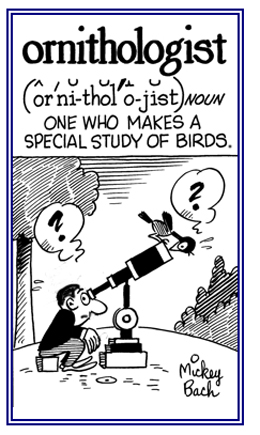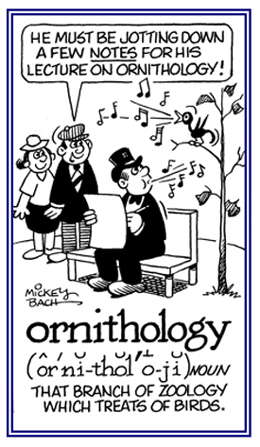-ology, -logy, -ologist, -logist
(Greek: a suffix meaning: to talk, to speak; a branch of knowledge; any science or academic field that ends in -ology which is a variant of -logy; a person who speaks in a certain manner; someone who deals with certain topics or subjects)
The word -ology is a back-formation from the names of certain disciplines. The -logy element basically means "the study of ____". Such words are formed from Greek or Latin roots with the terminal -logy derived from the Greek suffix -λογια (-logia), speaking, from λεγειν (legein), "to speak".
The suffix -ology is considered to be misleading sometimes as when the "o" is actually part of the word stem that receives the -logy ending; such as, bio + logy.
Through the years -ology and -logy have come to mean, "study of" or "science of" and either of these suffixes often utilize the form of -ologist, "one who (whatever the preceding element refers to)".
The examples shown in this unit represent just a small fraction of the many words that exist in various dictionaries.
2. The study of plant and animal organs, in reference to their structure and functions.

Go to this Word A Day Revisited Index
so you can see more of Mickey Bach's cartoons.

Go to this Word A Day Revisited Index
so you can see more of Mickey Bach's cartoons.
2. The use of special hard contact lenses to treat myopia by altering the curvature of the cornea.
The lens presses on the center of the cornea; therefore, decreasing the protrusion.
2. Correct speaking or the right use of words: Mark's parents insisted that he should make sure that he uses orthology whenever he is talking or writing essays and letters.



